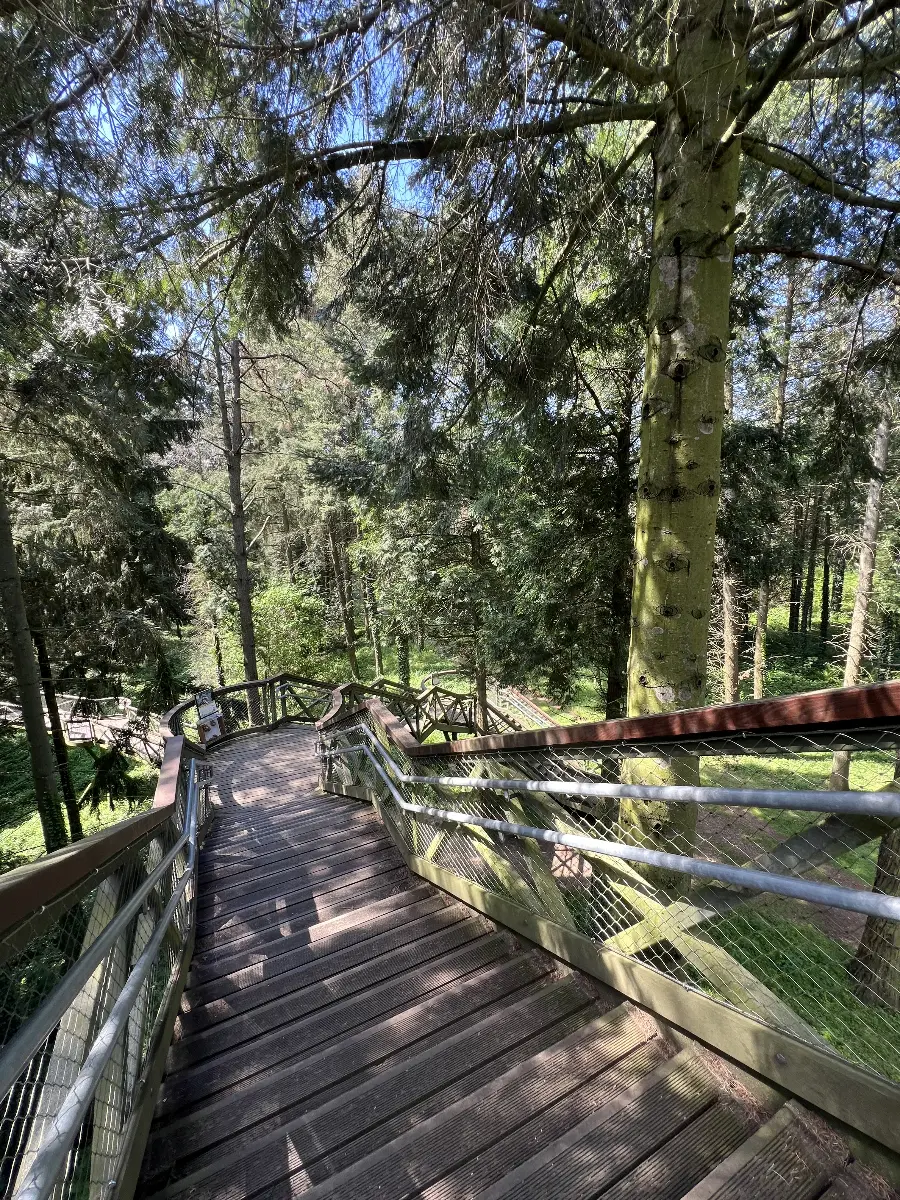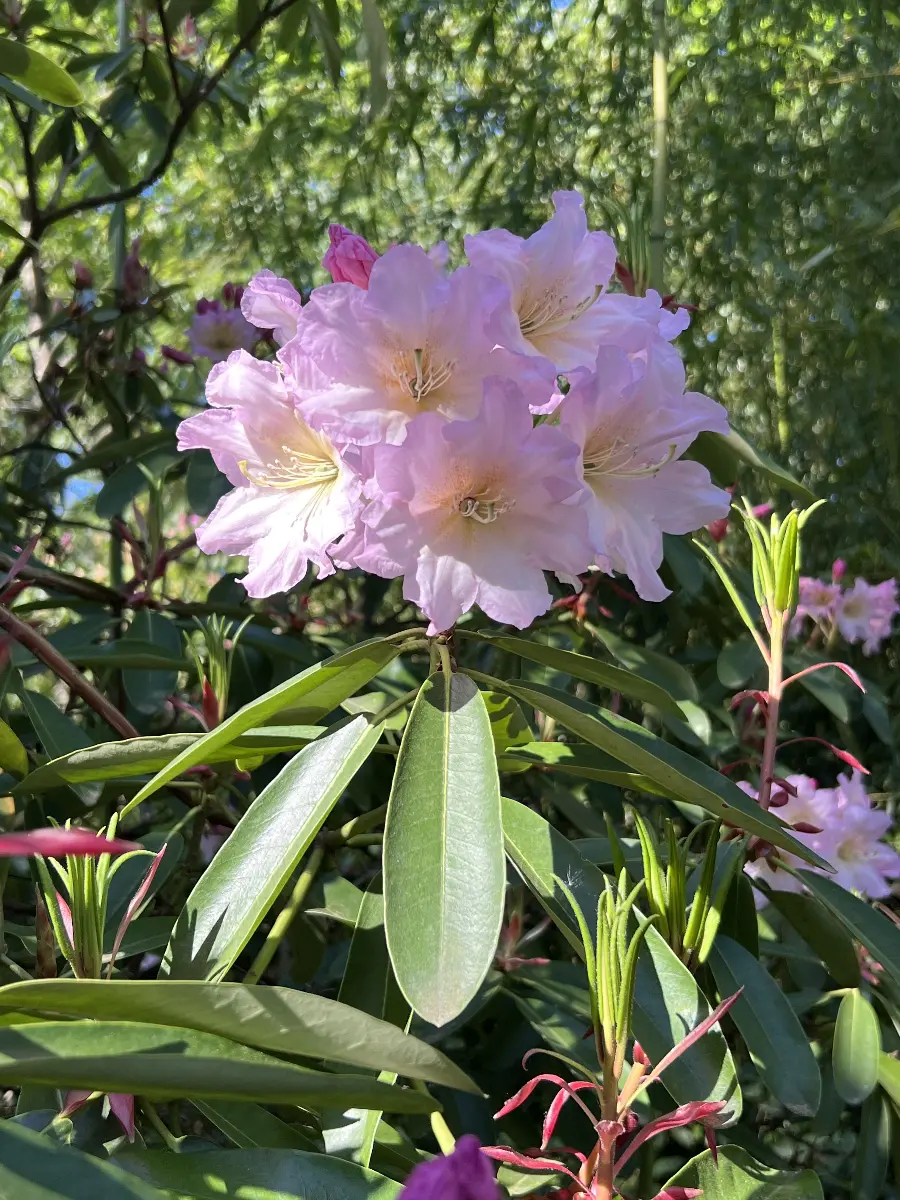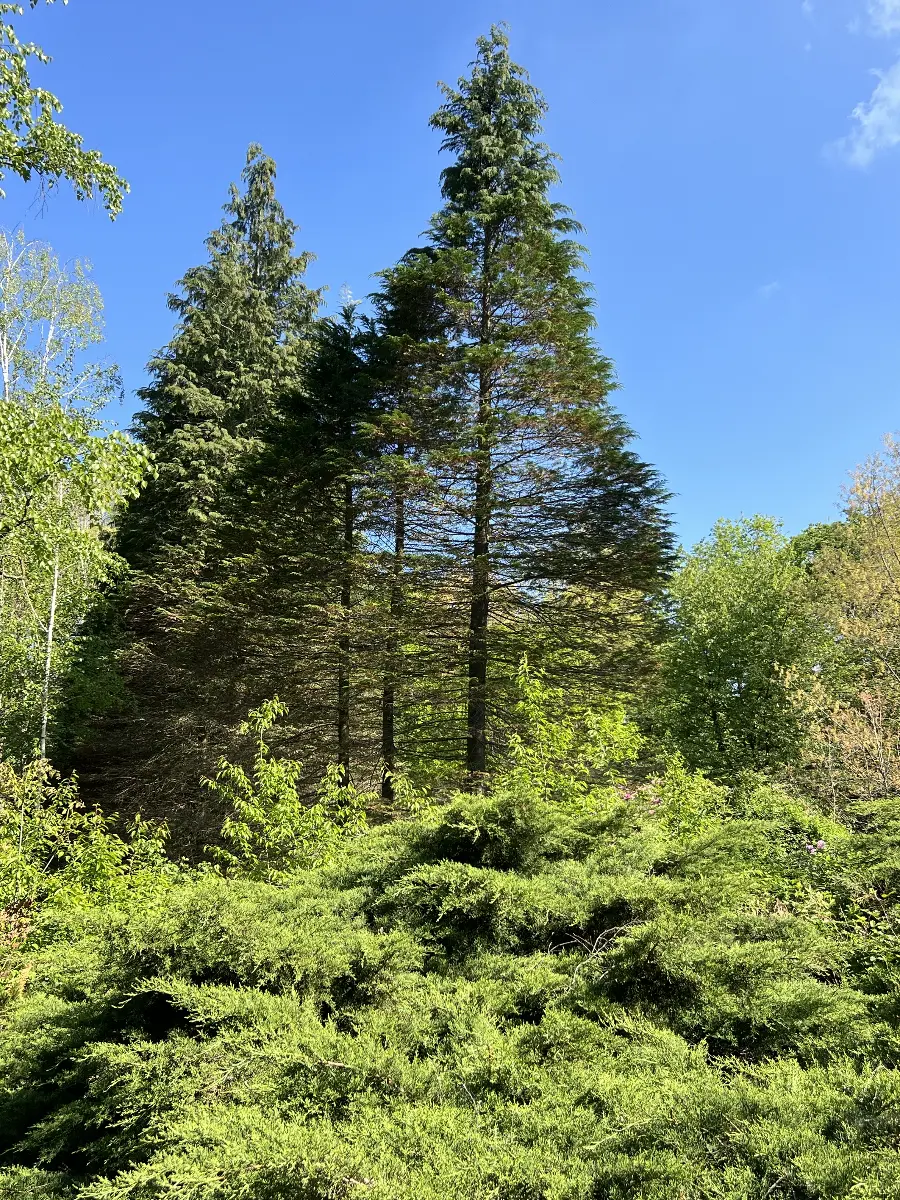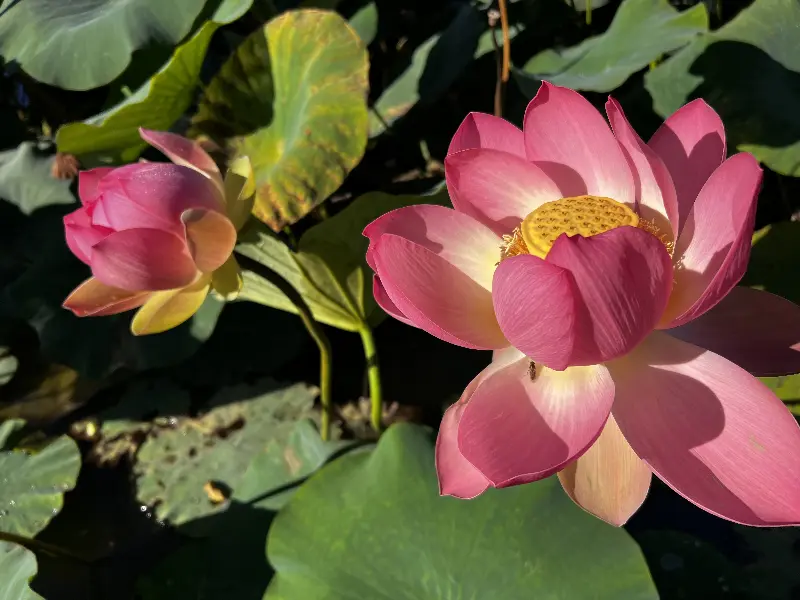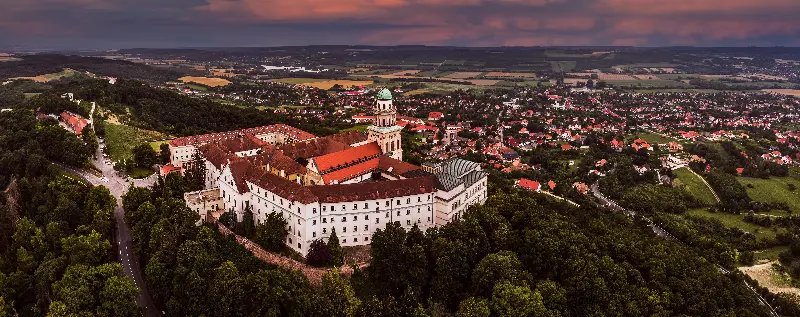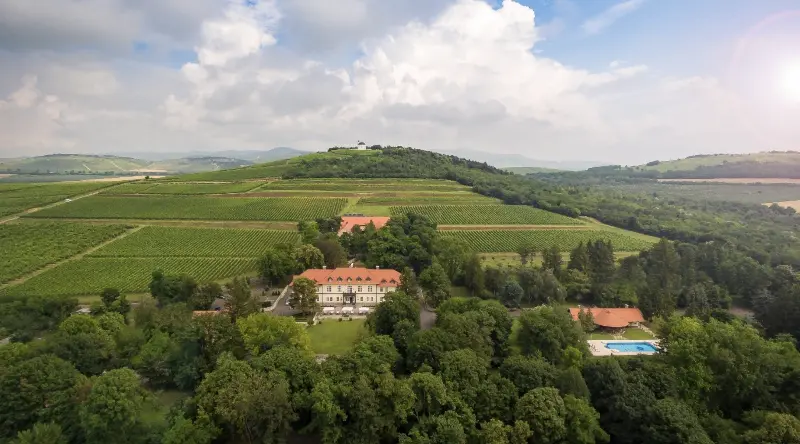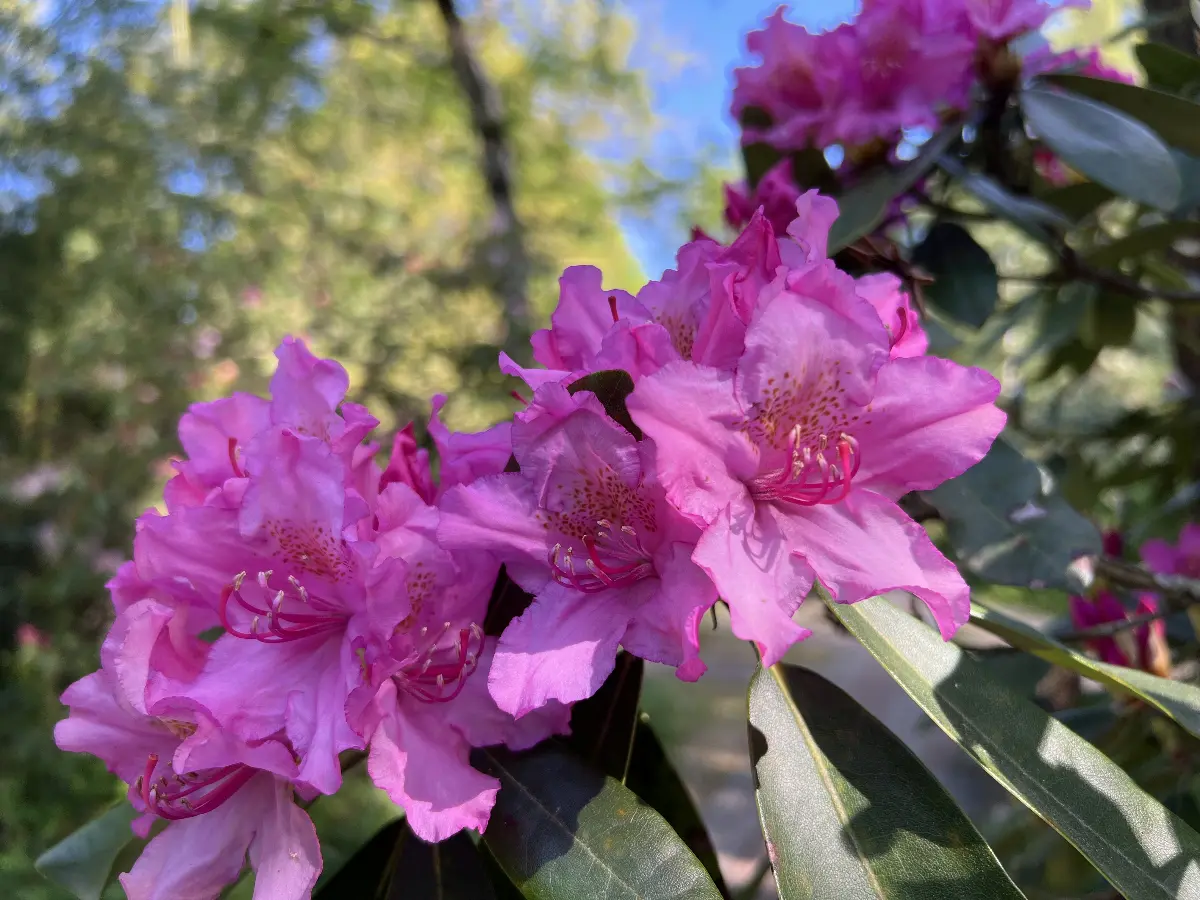
Helyszín címkék:
Where North and South join hands: the Jeli Magic Garden
Hajdú Gábor
The "flowery count"
The founding of one of the most unique collection gardens in our country is attributed to Count Ambrózy-Migazzi István. Ambrózy, known as the “flowery count”, was born in Nice, a Mediterranean region of France. He spent his childhood on the family estate in the village of Tana, Vas County. His mother was a passionate gardener, and he inherited his passion for nature from her. After finishing school, he made long journeys. He returned to his homeland, crossed the Mediterranean, visited Algeria, the British Isles, the foothills of the Alps and Geneva. During his travels, he studied the flora and investigated how he could naturalize plants from distant landscapes. At the age of 23, he married Countess Antóni Migazzi. Memories of his Mediterranean homeland, his interest in plants, and the experiences of his travels fell on fertile soil in Malonya. However, history intervened: after the declaration of the Treaty of Trianon, he only could have kept the estate if he had renounced his Hungarian citizenship. Although Ambrózy lost the estate, he kept his faith, which gave him the strength to create a new garden.
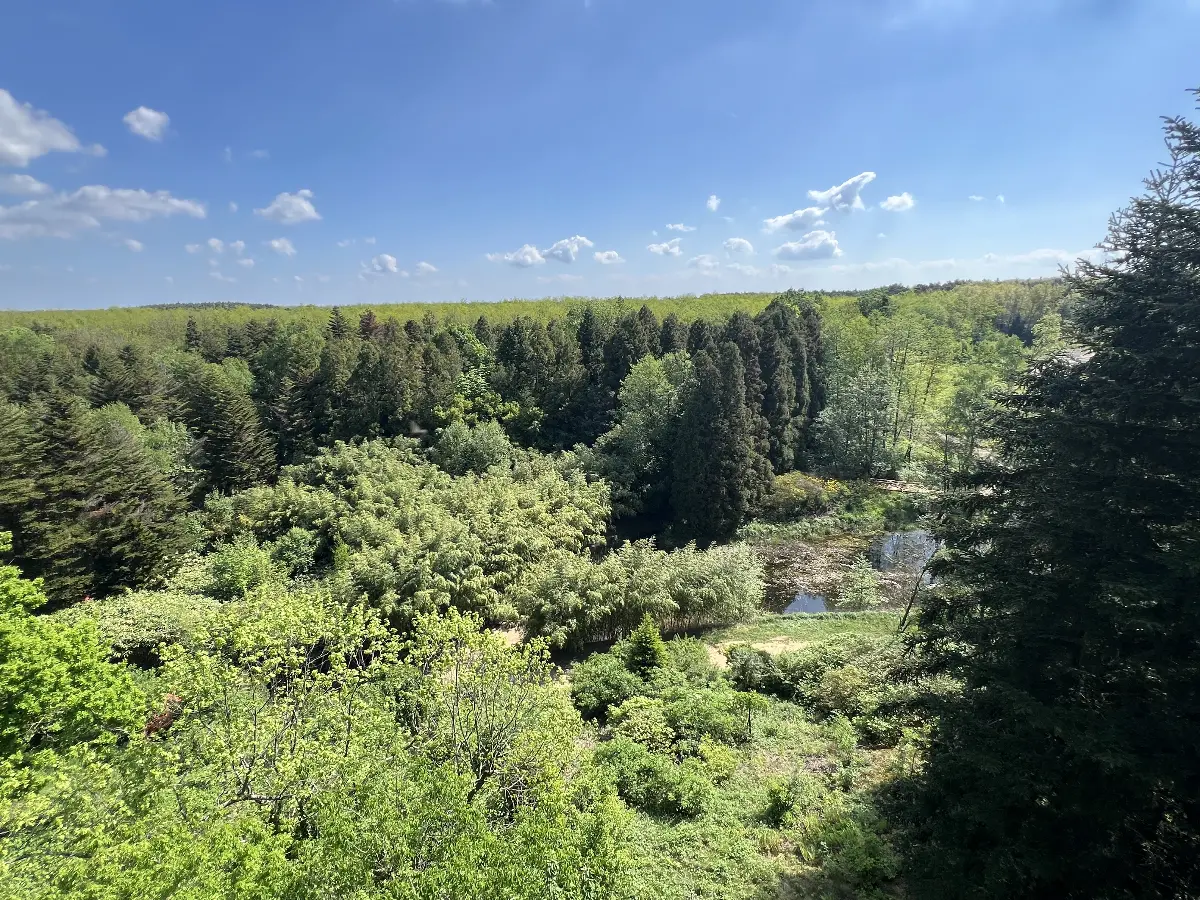
The dream come true
Ambrózy was convinced that it was possible to maintain an ever-blooming, ever-springing garden even in the climate of the Carpathian Basin. His motto, which can be read on his chosen tomb in the Jeli Arboretum, is "Semper vireo" - "I am ever green". After the First World War, Ambrózy started to establish the collection on the Jelihálás Plain in 1922. From the plateau through the valley of the Kaponyás stream to the Hétforrás gorge, the varied topography provides different climatic exposures, light, heat and humidity conditions. This microclimate is suitable for the creation of a wide variety of plant associations, so Ambrózy planted masses of cherry-laurels, barberries, pines, spindle-berries, cotoneasters, holly, boxwood, yews and thujas. He planted dozens of varieties of rhododendrons in the humid, shady environment thus created.
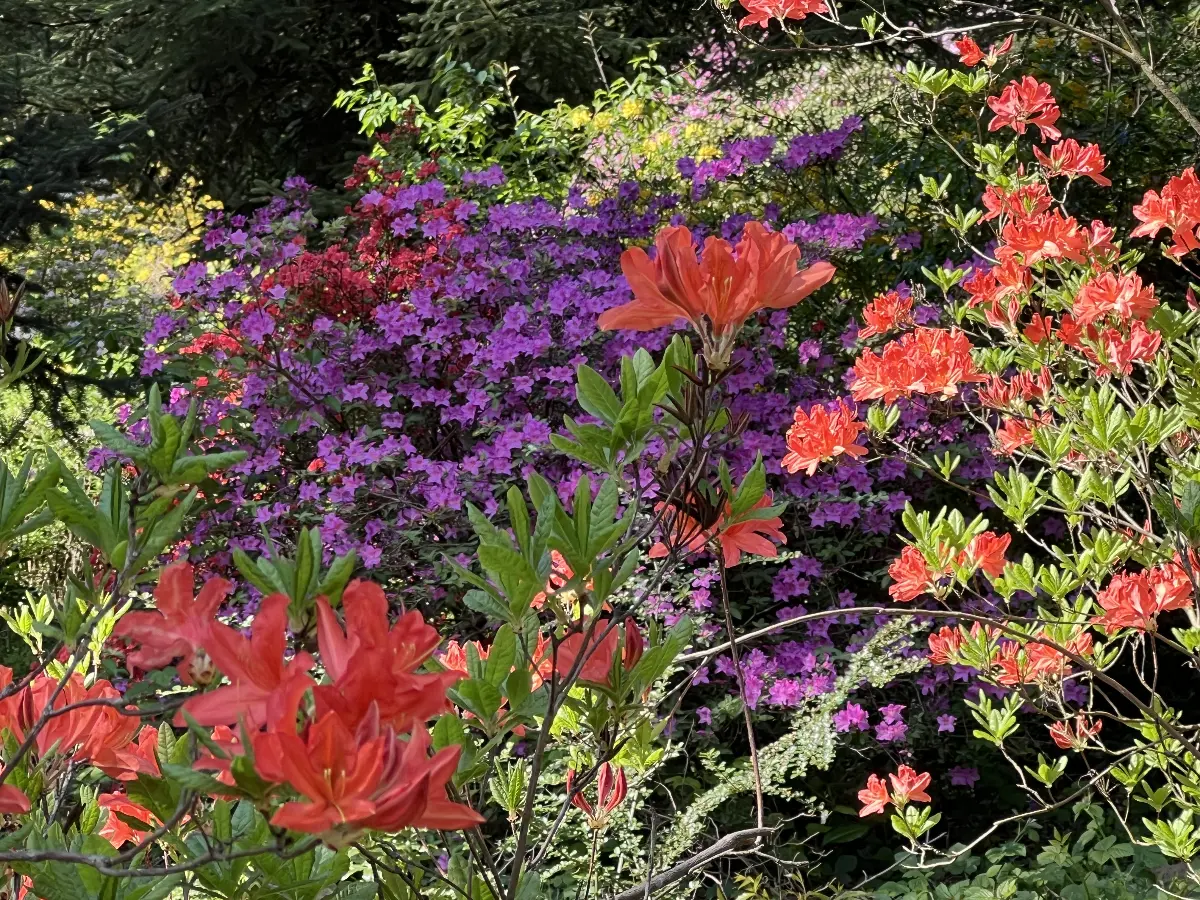
High mountain flower orgy
The area on the Vasi ridge is an extremely acidic soil, which is quite rare in our country. However, it is very suitable for planting and maintaining mountain plants. One of these is the magnificent rhododendron, which blooms in late spring and early summer, bringing the peak season of the Jeli. At this time, thousands of people pilgrimize to see the crimson, white, orange and yellow plants in full bloom. Huge bushes, sometimes 8-10 metres high, welcome visitors. The dark, laurel-like leaves of the almost century-old, continuous bush giants, reminiscent of tropical forests, are interspersed with hundreds of palm-sized clusters of pale purple flowers, six to eight trumpets per bunch. These plant rarities live closest to us in the Alps, on the Schneeberg, 100 kilometres away, but they are also native to the Caucasus, the Himalayas, Japan, and the Rocky and Appalachian Mountains. In the Jeli Arboretum, you can see a collection of more than 700 different species from plant material from three continents.
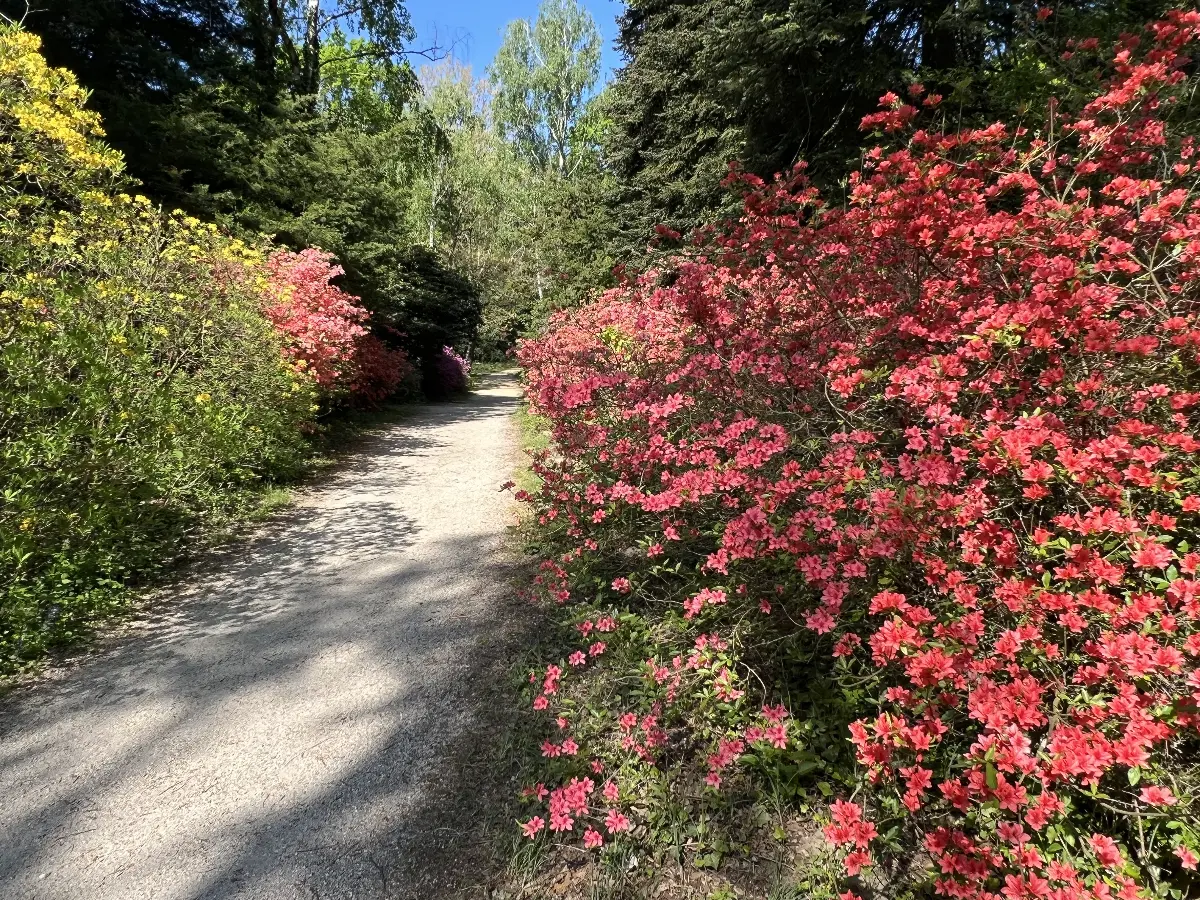
Mediterranean garden
While you admire the dazzling rhododendrons, do not be surprised if you stumble upon a Mediterranean plant. A real botanical speciality is the strikingly beautiful queen's candle, which blooms in early May. The Asphodelus albus, or as the people of Vas simply call it, the asphodel, occurs from the Mediterranean region through Greece, Italy, and Spain, and in our country it reaches the northern limit of its continuous distribution area. Ambrózy's favourite plants were evergreens with foliage leaves. Among these, the collection included the winter haw, the western strawberry tree, or the evergreen oak, the cork oak. The Mediterranean Garden, established in 2023, housed the mountain eucalyptus, native to the highlands of Tasmania, south of Australia. However, one of the most interesting plants is the Chinese hemp palm, whose small yellow flowers bloom in truss in summer. Passing the olive grove, summer lilacs and Chinese silk myrtles line our path.
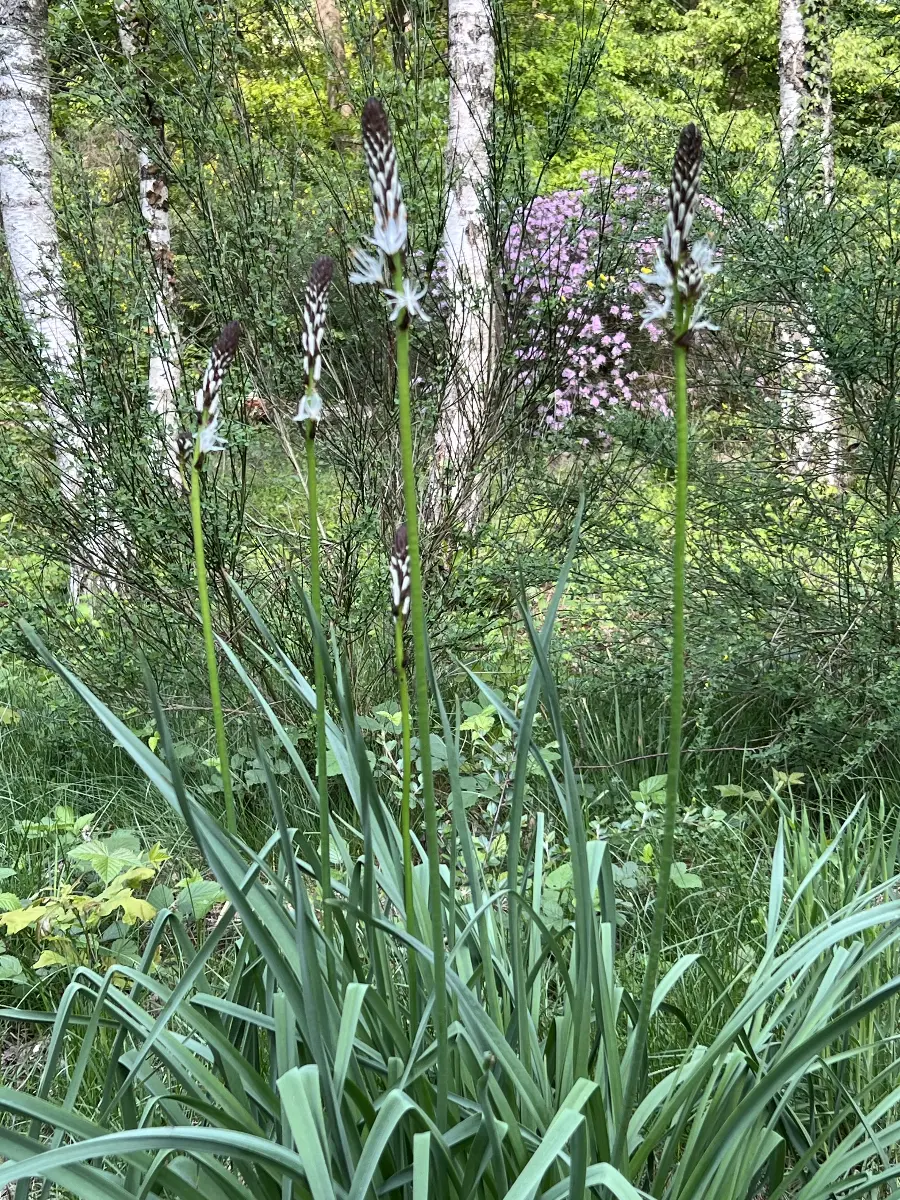
Landscape zones
In the valley of the Kaponyás Creek, in the landscape zones created by foresters, visitors can get to know ten different forest communities of the world. This way, you can get an insight into the forest world of the Himalayas, Japan, the Caucasus or the Rocky Mountains, among others. In the latter, you can observe the pine cones and needles of the pine trees on a ten-metre-high canopy promenade, and you can also get to know our native birds. Admiring the landscape and the garden in it from the top of the Ambrózy-Migazzi István lookout, the words of the lover of eternal spring gain meaning:
"How much happier is anonymity than rank and damn social obligations. That is why I think that the only way I can give meaning to the wealth left to me is by planting it. If I become the flowery count, the fool."
